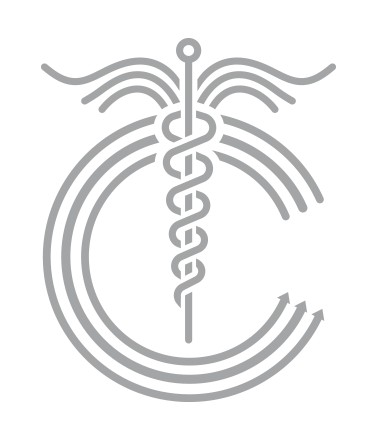Adults
Teenagers
Children
Ages 5+
Senior
Adults
Families
Veterans

Cassidy Psychiatry is committed to putting patients first. We believe that the very best psychiatrists and mental health providers spend more time with their patients. Our patients have direct access to the focused care needed to heal and live better.
Mental health does not have to be provided in a sterile concrete floor environment. At Cassidy Psychiatry the entire patient experience is geared toward making you feel welcomed and at ease. After one visit, you will see the Cassidy Psychiatry difference and experience that sets us apart.
At our clinic, we offer a comprehensive range of mental health and wellness services designed to support the whole person—mind, body, and spirit. From advanced psychiatric care and personalized medication management to innovative treatments like KetaMist® and genetic testing, our approach is rooted in compassion, expertise, and results. Whether you’re seeking emotional healing, physical wellness, or a clearer path forward, we’re here to walk with you every step of the way.

Our comprehensive psychiatric services provide personalized care for conditions such as depression, anxiety, bipolar disorder, PTSD, and more. We focus on understanding your unique needs and creating a treatment plan that supports long-term emotional well-being. Our expert team is dedicated to helping you achieve mental stability and overall wellness.

Our providers deliver evidence-based psychiatric care, ensuring safe and effective medication management tailored to your unique mental health needs. Through ongoing support and individualized monitoring, we help you find the right balance for sustained mental health and resilience.

Our physician-supervised weight loss programs support appetite control, fat burning, and metabolic health, helping you achieve your fitness goals with clinically backed, science-driven results. Designed to complement your lifestyle, our approach delivers sustainable results through personalized nutrition, targeted treatments, and professional guidance.

Therapy provides a safe, supportive space to work through life’s challenges with a licensed mental health professional. We use evidence-based methods to help you build emotional resilience, develop healthy coping skills, and grow through self-discovery. Whether you’re managing a diagnosis or seeking personal growth, we’re here to walk with you.

Pharmacogenetic testing gives us insight into how your body metabolizes medications, helping us tailor your treatment for optimal results. With just a simple cheek swab, we can eliminate much of the trial and error in medication selection. This innovative tool brings clarity and confidence to your mental health care.

Vitamin injections deliver essential nutrients directly into your bloodstream for improved energy, mood, and overall vitality. We offer blends like B12 and Vitamin D to help restore balance and enhance wellness. These quick, effective treatments are a great addition to your mental and physical self-care routine.
KetaMist® is a groundbreaking method of Ketamine delivery for Treatment Resistant Depression and other health conditions. KetaMist® has truly revolutionized the delivery of Ketamine, positively changing the lives of patients with faster results. KetaMist® gives patients control over their Ketamine treatment in ways that are impossible for IV, oral, or nasal delivery.
Unlike other psychotropic medications that have to be taken every day and usually take four to six weeks to begin to work, KetaMist® can improve symptoms within hours of treatment.


Schedule your same or next day appointment now.
Prefer Telemedicine appointments? No problem. Just let us know.
37 reviews
5

Sep24, 2024
Lorem ipsum dolor sit amet, consectetur adipiscing elit. Nullam sed metus pellentesque, porta ante volutpat, ultricies odio. Lorem ipsum dolor sit amet, consectetur adipiscing elit.
5

Sep24, 2024
Lorem ipsum dolor sit amet, consectetur adipiscing elit. Nullam sed metus pellentesque, porta ante volutpat, ultricies odio. Lorem ipsum dolor sit amet, consectetur adipiscing elit.
5

Sep24, 2024
Lorem ipsum dolor sit amet, consectetur adipiscing elit. Nullam sed metus pellentesque, porta ante volutpat, ultricies odio. Lorem ipsum dolor sit amet, consectetur adipiscing elit.
Anxiety disorders involve excessive fear, worry, or nervousness that can interfere with daily life. Conditions like generalized anxiety disorder, panic disorder, and social anxiety often cause both emotional distress and physical symptoms. With the right support, anxiety can be effectively managed and significantly improved.
Dissociative disorders involve disruptions in consciousness, memory, identity, or perception, often as a response to trauma. Individuals may feel disconnected from themselves or their surroundings, and may experience memory gaps or identity confusion. Compassionate, trauma-informed care is essential for healing and integration.
Eating disorders such as anorexia nervosa, bulimia nervosa, and binge-eating disorder involve harmful patterns of eating and body image disturbances. These conditions can lead to serious physical and emotional consequences. Recovery is possible with a multidisciplinary approach that addresses both psychological and nutritional needs.
Neurodevelopmental disorders affect brain development and can impact learning, behavior, communication, and social interaction. Autism Spectrum Disorder (ASD), in particular, is characterized by challenges in social skills, repetitive behaviors, and unique strengths or sensitivities. Early diagnosis and support can foster growth, independence, and improved quality of life.
Neurocognitive disorders, including dementia and mild cognitive impairment, involve a decline in mental functions such as memory, reasoning, and judgment. These conditions often affect older adults and can interfere with independence and daily living. Early assessment and care planning are crucial for maintaining dignity and quality of life.
These disorders include obsessive-compulsive disorder (OCD), body dysmorphic disorder, and related conditions that involve intrusive thoughts and repetitive behaviors. Left untreated, they can significantly disrupt daily routines and well-being. Treatment helps reduce the intensity of symptoms and improve control and coping.
Personality disorders involve enduring patterns of thinking, feeling, and behaving that deviate from societal expectations and cause distress or difficulty in relationships. These patterns are often deeply rooted and can be challenging to manage without support. Therapy helps individuals develop healthier relationships and emotional regulation strategies.
These disorders develop in response to traumatic or stressful events and can result in symptoms such as flashbacks, avoidance, hypervigilance, or emotional numbness. PTSD is one of the most well-known conditions in this category. Trauma-informed therapy can offer profound healing and a path to recovery.
These disorders are characterized by disruptions in thinking, perception, and behavior, including hallucinations, delusions, and disorganized speech. Schizophrenia and related conditions can be severe but are treatable with the right medical and therapeutic interventions. Supportive care helps individuals manage symptoms and maintain daily functioning.
These disorders involve the misuse of alcohol, drugs, or other substances, often leading to dependence, withdrawal, and disruptions in health, relationships, and responsibilities. Addiction is a complex condition that affects the brain and behavior. Recovery is possible through a combination of medical treatment, therapy, and support.
832 South Florida Ave. Suite 2
Lakeland, Florida 33801
Office Hours
Monday – Thursday 8:00 a.m. – 6:00 p.m.
Friday 8:00 a.m. – 4:00 p.m.